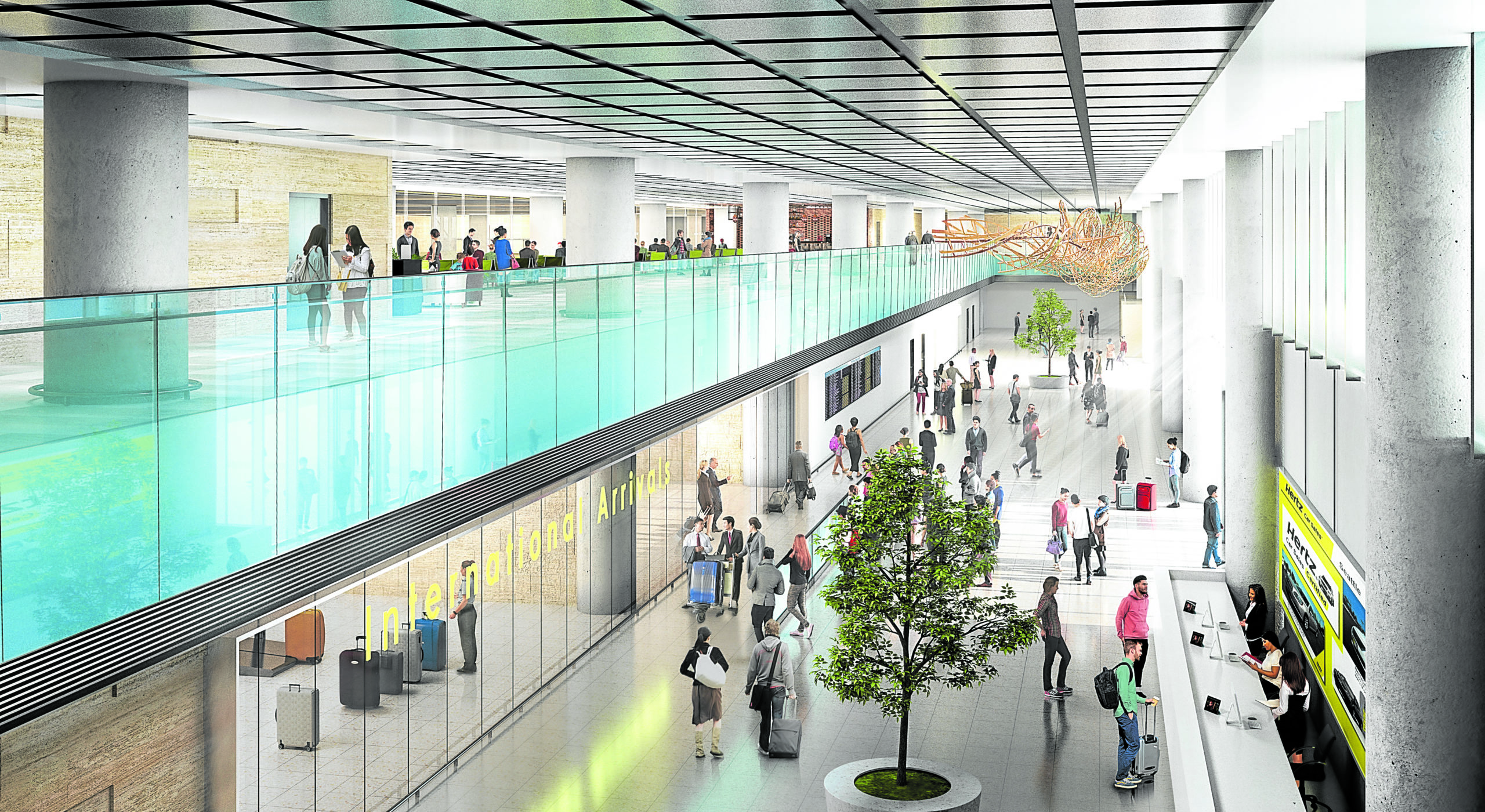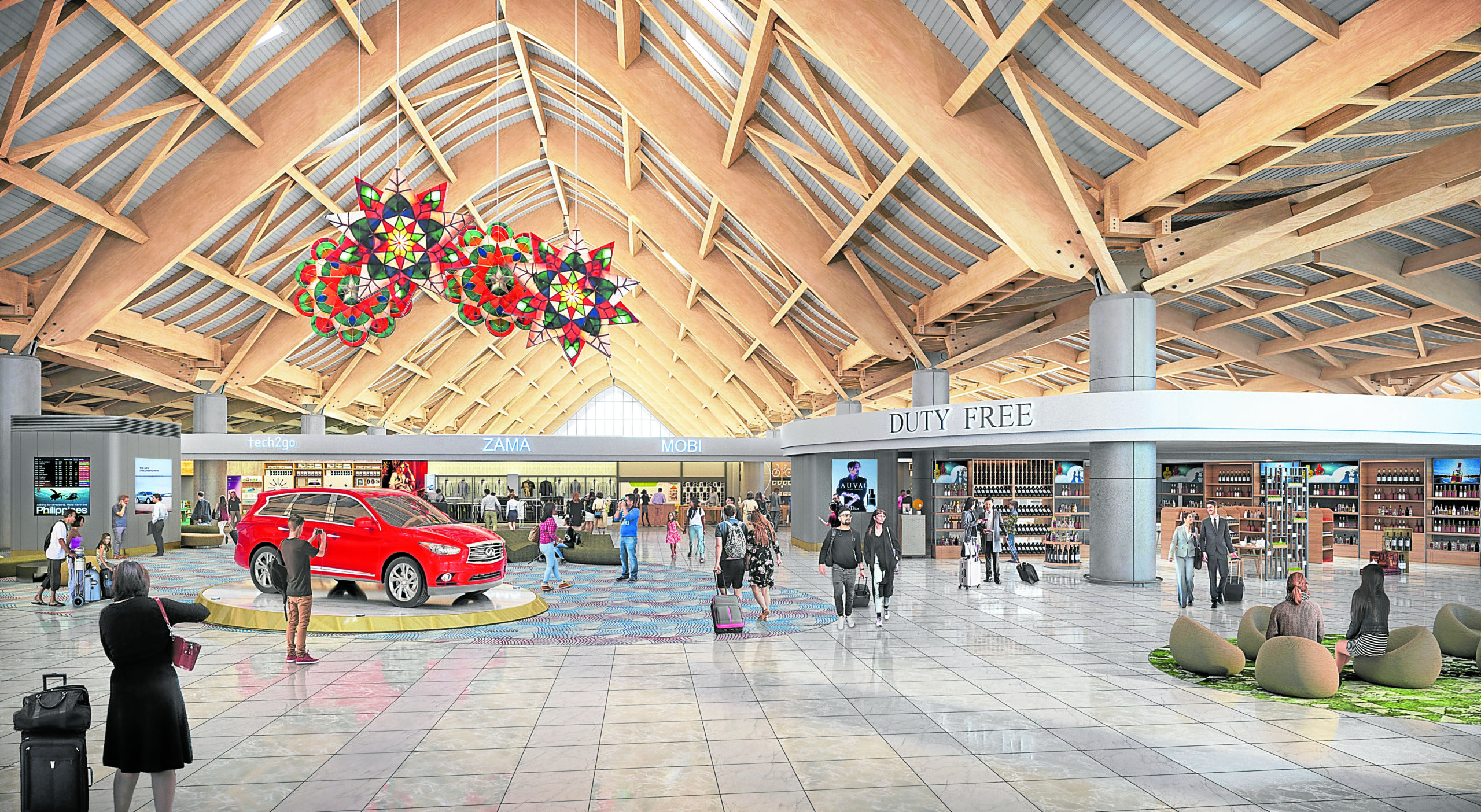
The terminal’s friendliness shuns the jitters one usually gets inside an airport, a big help when walking around the four-floor, 110,000-sqm facility.
The new swanky passenger terminal of the Clark International Airport (CRK) wants travelers to belong in it.
As such, the Luzon International Premier Airport Development Corp. (Lipad) is ensuring that CRK Terminal 2 in Clark Freeport Zone will foster intuitiveness, celebrate local heritage and promote peace of mind when it receives and sends off flights by July.
“First of all, we want a very hassle-free experience,” Lipad CEO Bi Yong Chungunco said to media on March 9. “It’s very intuitive.”
She easily proved this by leading a walkthrough that followed the flow of travelers. The terminal’s friendliness shuns the jitters one usually gets inside an airport, a big help when walking around the four-floor, 110,000-sqm facility—a huge upsize from the 25,000-sqm terminal that is 1.5 km away.
The government turned the facility over to Lipad as operator and manager on Dec. 15, 2020, under a 25-year concession agreement. Terminal 2 is currently 57-percent complete. When it is finished, it can host 8 million passengers annually versus the older one’s 4.2 million. CRK wants to be the gateway of choice for North and Central Luzon, plus Quezon City. The rest of Metro Manila will soon find it easier to get there, thanks to a train system that will shorten travel time to an hour.
Lipad is sticking with a “silent airport policy,” envisioning CRK Terminal 2 as the quietest airport in the country. People will rarely hear boarding calls. They will rely on posted announcements for quick reference. Colors and signages will guide them, too.
The terminal also has a “deep sense of place.” The shell—designed by Budji + Royal and built by Megawide Construction Corp. and GMR Infrastructure Ltd.—pays homage to Central Luzon by depicting the Zambales mountain range in the roof structure and Pampanga’s “parol” through the skylight and glulam timber supporting the roof. Lipad will follow suit, also highlighting the heritage of Central Luzon with the interiors.
Lipad chose global design firm Populous as the lead interior and retail planning designer. The company has worked on over 3,000 projects, including Kansai Airport in Japan and the Philippine Arena. Leading firm Casas + Architects is the local architect on record.
Celebrating the liveliness of the people, the designers used vibrant colors instead of the beige palette in most airports. The green in the international gates represents Mt. Arayat, in full view from the large picture windows. Blue marks the domestic area, symbolizing the waters of Manila Bay. A specific tint of blue on several structures depicts Mt. Pinatubo’s crater lake. The grays and creams at the Arrival Corridor and Immigration Hall mimic mountainside rock formations and the Sacobia riverbed nearby. The Baggage Reclaim Area represents the local caves.
The event space, the building’s focal point, exalts the culture of gatherings. It will host exhibits and other events. Lanterns will be suspended from the ceiling, attracting passengers to the Airside Retail Area. CRK highlights family values by allowing people into the Arrival Corridor to see their loved ones off. Lipad also prides itself in the inclusive all-gender restrooms and elevators, as well as free lounges for OFWs.
Finally, the technology promotes peace of mind. CRK will embrace contactless passenger solutions, including common-use self-service kiosks and the self-service bag drops. Passengers can check in using their phones, no need to touch surfaces or seek the staff. Lipad is under the technical advisement of Changi International Airport, allowing CRK to adapt to the latest.
“We want you to feel like you’ve already started your vacation once you’ve stepped into the airport,” said Chungunco. “We believe that once restrictions are lifted, travel will come back with a vengeance.”
And CRK will be ready.


